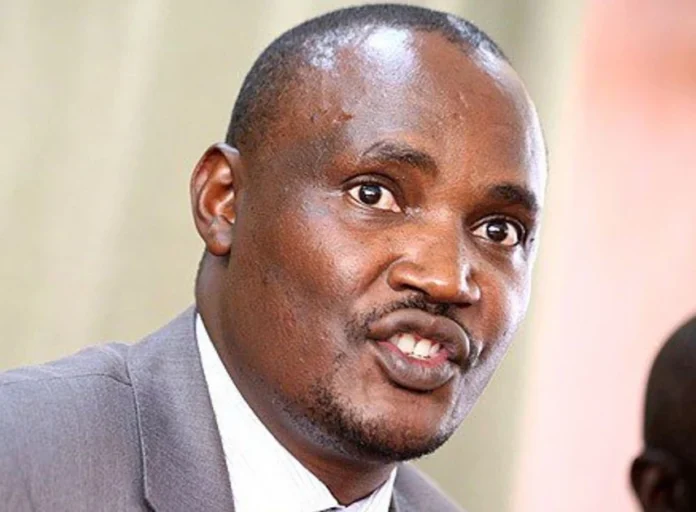By Daniel Otieno, Kakamega
The Cabinet Secretary for the National Treasury and Economic Planning, John Mbadi has apportioned blamed on excessive borrowing to former President Uhuru Kenyatta administration.
Mbadi who seemed to be talking from both sides of his mouth claimed that its Uhuru’s administration that plunged the country into debts, while at the same time, absolving blame of the current fiscal challenges facing the country to President William Ruto.
When Uhuru Kenyatta took over as President, his predecessor William Ruto was his deputy between 2013- 2022 during the Jubilee administration, the public debt jumped to Sh8.7trillion by August 2022. In fact, between December 2017 and August 2022, public skyrocketed by Sh4.1trillion.
According to Mbadi, most of the borrowings were made by previous administration. “Kenyans should be aware that we took on substantial debt starting in 2014, and this is now choking the government. We are not yet out of the woods,” he stated.
At the time the late President Mwai Kibaki left office in March 2013, the country’s total public debt was around Sh1.8trillion, which was at most 42.8 percent of the Gross Domestic Product (GDP).
When Uhuru Kenyatta took over as President, his predecessor William Ruto was his deputy between 2013- 2022 during the Jubilee administration, the public debt jumped to Sh8.7trillion by August 2022. In fact, between December 2017 and August 2022, public skyrocketed by Sh4.1trillion.
When Ruto took over as President, in just 17 months as at April 2024, he borrowed higher amounts of money as compared to his two predecessors (Kibaki and Uhuru) and spent less on development despite collecting high taxes.
A report from the national treasury dubbed ‘Annual Borrowing Plan 2024/25) shows that as at end of June 2024, the total debt stood at Sh10.561 trillion (equivalent to 65.5 percent of GDP).
With the above data, Mbadi still believes that Kenya Kwanza administration is of lesser evil than previous administrations.
“We are working to get out of the debt trap, which is why you may be facing challenges. But I am committed to the people of Kenya, and the President of the Republic agrees that we must not overtax Kenyans,” he explained.
Mbadi further reassured the public, stating, “Do not listen to any rumors about increased taxes. Our only option is to broaden the tax base so that those who are not paying taxes, but should be, will start paying, without overburdening those who are already complying with the system.”
The Treasury boss also committed to improving Kenya Revenue Authority (KRA) efficiency, promising that the tax system would be streamlined to minimize corruption and ensure that taxpayers’ money is used more responsibly.
Due to the mounting debt, Mbadi confirmed that some government operations had been paralyzed to prioritize the settlement of overdue tax payments. This has led to mixed reactions from the public, especially as citizens demand essential services.
“Yesterday and today, there have been many reports about challenges in the education system due to unpaid capitation. The reason we haven’t released capitation is that we had to pay Sh70 billion as part of our external debt obligations this month. We’ve settled those obligations, and now we’re free to run our programs,” he explained.




